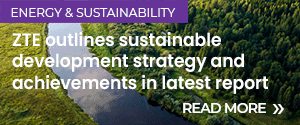Malaysian clean energy solutions provider Gentari and cloud services giant Amazon Web Services (AWS) have signed a power purchase agreement (PPA) for an 80MW wind power project in Tamil Nadu, India, a state on the south-eastern coast of the Indian peninsula.
Targeted to commence operations in mid-2027, the project is expected to generate approximately 300,000 MWh of renewable energy annually. Gentari is an independent clean energy solutions entity, established by Malaysian oil and gas company Petronas to focus fully on delivering clean energy solutions and to seize opportunities in the energy transition. Gentari says that through the supply of renewable energy, it is advancing its vision of putting clean energy into action, while supporting AWS's goal of reaching net-zero carbon by 2040.
Jeff Johnson, Managing Director, ASEAN, AWS, explains: "As the world's largest corporate purchaser of renewable energy globally, AWS continues to work towards our goal of reaching net-zero carbon emissions by 2040. Our collaboration with Gentari, a Malaysian clean energy leader expanding its regional impact, brings us a step closer towards that.”
The Data Centre Dynamics website says the project is part of the larger Karur Wind Development, a major wind energy zone in Tamil Nadu. This PPA follows a collaboration agreement signed between the two companies back in 2023, which set the parameters for sustainability and decarbonisation initiatives between the two firms.
It adds that AWS has signed several PPAs in the Indian market as it continues to expand there. In February, the company signed two PPAs in India for a combined 199MW.
Although the initial announcement from Gentari does not refer to specific AWS operations, Data Centre Dynamics suggests that the power is expected to support the company’s expansion in the region, following a commitment, reported here earlier this year, to invest US$8.3 billion in developing cloud infrastructure for its AWS Asia-Pacific (Mumbai) Region in Maharashtra, India.
AWS entered the Indian market in 2016 with Mumbai cloud region. A cloud region in Hyderabad followed in 2022.

































